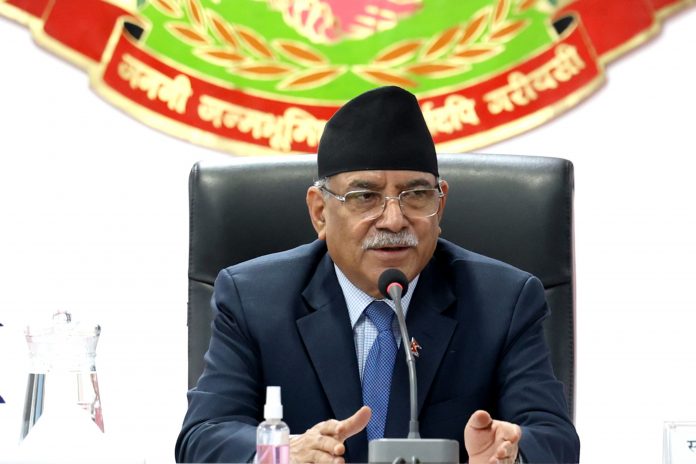
KATHMANDU, FEBRUARY 29: Prime Minister Pushpa Kamal Dahal ‘Prachanda’ today emphasized the importance of establishing a system where individuals responsible for causing damage to the state are held accountable and required to pay compensation for the losses incurred. During a meeting to review the implementation of policies, programs, and the budget for the current fiscal year, he highlighted the need to evaluate the extent of damage caused by reluctance to make appropriate decisions and shifting responsibility.
PM Dahal expressed concern over the increasing trend within the bureaucracy of avoiding accountability for responsibilities. He stressed the detrimental impact of this mindset on national achievements and the protection and development of the political system. According to him, the major challenges include failure to make timely decisions, shifting responsibility for decisions, and a lack of initiative in inter-agency coordination.
He urged officials to make dynamic decisions and play a creative role within the framework of existing laws. PM Dahal emphasized that public officials should not hesitate to make decisions within legal boundaries, assuring his commitment to defend decisions made with good intentions and provide protection to officials.
PM Dahal directed government officials to identify causes and problems hindering the achievement of set targets and to enhance the implementation capacity of the administrative mechanism. He emphasized the prompt, efficient, and cost-effective delivery of public services to the general public.
Highlighting the lack of harmony in policy, programs, budget, and plans, PM Dahal expressed concern over the increasing tendency of government agencies failing to meet annual goals and indicators. He stressed the need for a shift in traditional working styles and called for collective efforts from the Finance Ministry, National Planning Commission, and ministries to increase capital expenditure and ensure the smooth operation of development projects and programs.
In conclusion, the Prime Minister underscored the importance of bearing full responsibility for effective project implementation and urged officials to work towards achieving tangible results















